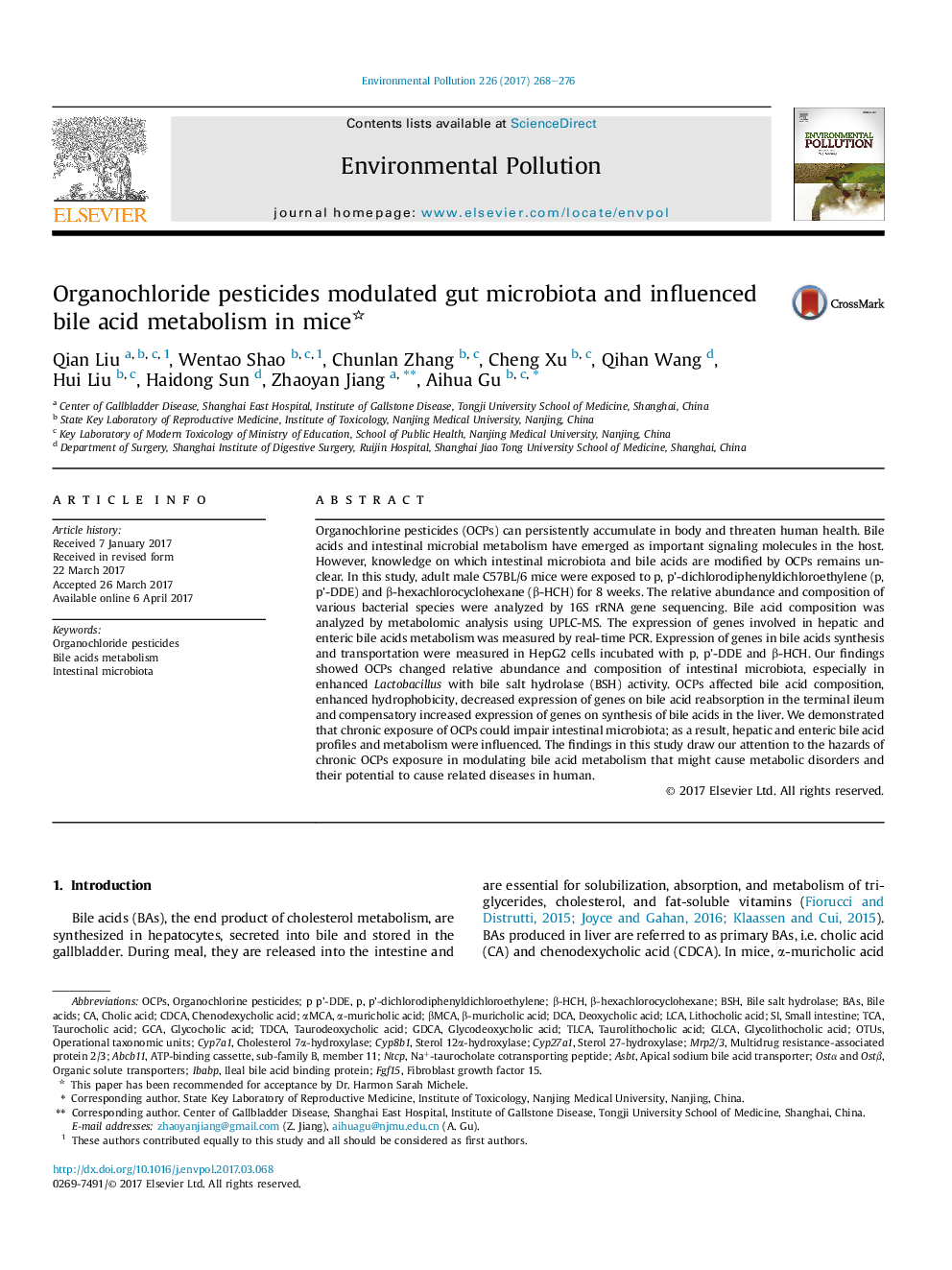| کد مقاله | کد نشریه | سال انتشار | مقاله انگلیسی | نسخه تمام متن |
|---|---|---|---|---|
| 5749089 | 1619147 | 2017 | 9 صفحه PDF | دانلود رایگان |
- Chronic exposure of p, p'-dichlorodiphenyldichloroethylene (p, p'-DDE) and β-hexachlorocyclohexane (β-HCH), two predominant metabolites of organochloride pesticides (OCP)s, changed relative abundance and composition of intestinal microbiota in mice.
- p, p'-DDE and β-HCH decreased expression of genes on ileal bile acid absorption and compensatory increased expression of hepatic genes on synthesis of bile acids.
- p, p'-DDE and β-HCH modified bile acid composition in bile and enhanced its hydrophobicity.
- OCPs modulated bile acid metabolism which might cause metabolic disorders related with diseases in human.
Organochlorine pesticides (OCPs) can persistently accumulate in body and threaten human health. Bile acids and intestinal microbial metabolism have emerged as important signaling molecules in the host. However, knowledge on which intestinal microbiota and bile acids are modified by OCPs remains unclear. In this study, adult male C57BL/6 mice were exposed to p, p'-dichlorodiphenyldichloroethylene (p, p'-DDE) and β-hexachlorocyclohexane (β-HCH) for 8 weeks. The relative abundance and composition of various bacterial species were analyzed by 16S rRNA gene sequencing. Bile acid composition was analyzed by metabolomic analysis using UPLC-MS. The expression of genes involved in hepatic and enteric bile acids metabolism was measured by real-time PCR. Expression of genes in bile acids synthesis and transportation were measured in HepG2 cells incubated with p, p'-DDE and β-HCH. Our findings showed OCPs changed relative abundance and composition of intestinal microbiota, especially in enhanced Lactobacillus with bile salt hydrolase (BSH) activity. OCPs affected bile acid composition, enhanced hydrophobicity, decreased expression of genes on bile acid reabsorption in the terminal ileum and compensatory increased expression of genes on synthesis of bile acids in the liver. We demonstrated that chronic exposure of OCPs could impair intestinal microbiota; as a result, hepatic and enteric bile acid profiles and metabolism were influenced. The findings in this study draw our attention to the hazards of chronic OCPs exposure in modulating bile acid metabolism that might cause metabolic disorders and their potential to cause related diseases in human.
241
Journal: Environmental Pollution - Volume 226, July 2017, Pages 268-276
